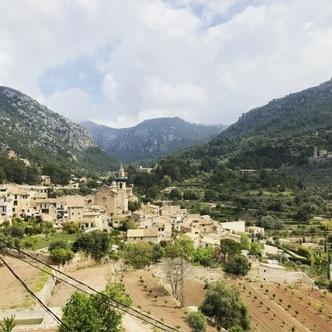How does Mallorca's Land Use Planning Law impact the protection of farmland on the island?
Similar Topics
mallorca land use
farmland protection mallorca
agricultural land regulation
sustainable land management
zoning regulations mallorca
farmland conservation
climate resilience planning
ecosystem preservation mallorca
Mallorca's Land Use Planning Law plays a crucial role in protecting the island's farmland by carefully regulating development and preserving agricultural zones. This legislation establishes clear boundaries between areas designated for farming and those approved for urban or touristic development, thereby minimizing the risk of farmland being converted into residential or commercial properties. By enforcing strict zoning regulations, the law helps maintain the rural character of large parts of Mallorca, ensuring that farming remains a viable and sustainable activity on the island.
The law also promotes sustainable land management practices by encouraging the maintenance of existing agricultural landscapes and discouraging fragmented or piecemeal urbanization. It restricts indiscriminate building permits that could disrupt the environmental balance, safeguarding the soil's fertility and the traditional farming heritage. By prioritizing farmland conservation, the legislation supports local food production and protects biodiversity, which is tightly linked to Mallorca's natural environment.
Moreover, the Land Use Planning Law facilitates long-term planning and environmental protection by requiring comprehensive assessments before any land reclassification. This process ensures that changes to land use do not contradict wider goals such as climate resilience and ecosystem preservation. In this way, Mallorca can balance economic growth, particularly in the tourism sector, with the need to sustain its agricultural resources. The result is a controlled, thoughtful approach to development that benefits both residents and visitors by preserving the island’s unique landscape and cultural identity.
The law also promotes sustainable land management practices by encouraging the maintenance of existing agricultural landscapes and discouraging fragmented or piecemeal urbanization. It restricts indiscriminate building permits that could disrupt the environmental balance, safeguarding the soil's fertility and the traditional farming heritage. By prioritizing farmland conservation, the legislation supports local food production and protects biodiversity, which is tightly linked to Mallorca's natural environment.
Moreover, the Land Use Planning Law facilitates long-term planning and environmental protection by requiring comprehensive assessments before any land reclassification. This process ensures that changes to land use do not contradict wider goals such as climate resilience and ecosystem preservation. In this way, Mallorca can balance economic growth, particularly in the tourism sector, with the need to sustain its agricultural resources. The result is a controlled, thoughtful approach to development that benefits both residents and visitors by preserving the island’s unique landscape and cultural identity.
🧩 Related Questions
Related Question
How can travelers identify vegetarian and vegan options on buffet menus in Mallorca?
Related Question
In what ways does the importation of pork affect the pricing structure of local pig farming in Mallorca?
Related Question
What types of water filtration systems are most effective for purifying cistern water?
